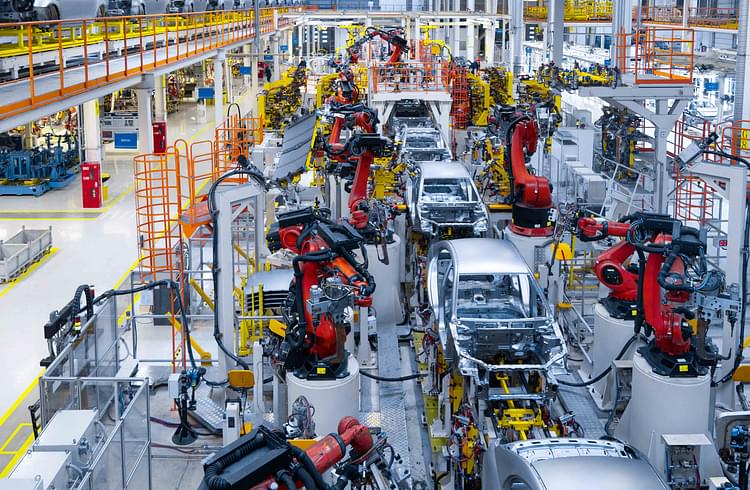Government Opens Portal for Companies to Apply for New Electric Car Manufacturing Scheme
The Scheme to Promote Manufacturing of Electric Passenger Cars in India (SPMPCI) allows OEMs to import electric cars with a minimum value of $35,000 at a reduced customs duty of 15% for five years, subject to a minimum investment of Rs 4,150 crore to manufacture cars in India.
The government on Tuesday opened the online portal for companies to apply for participation in the new electric car manufacturing scheme that allows limited imports of electric cars at a reduced import duty. The portal will be open until October 21, 2025.
The Scheme to Promote Manufacturing of Electric Passenger Cars in India (SPMPCI) allows global carmakers to import Completely Built-Up Units (CBUs) of electric cars with a minimum Cost, Insurance, and Freight (CIF) value of US$35,000 at a reduced customs duty of 15% for five years, against the normal duty of 70-110%, subject to certain investment and manufacturing commitments. The maximum number of cars that can be imported in a year under the scheme is limited to 8,000 units.
The policy states that companies will be required to set up manufacturing facilities in India with a minimum investment of Rs 4,150 crore and commence commercial production within three years to avail of this lower import duty. There is also a clause on domestic value addition – the manufacturers will have to achieve 25% domestic value addition within three years and further increase it to 50% by the fifth year.
The companies will have to back their investment commitment with a bank guarantee in lieu of the customs duty forgone. The bank guarantee, which should be an unconditional, irrevocable guarantee issued by a scheduled commercial bank in India, will be invoked if the company fails to meet the minimum investment and domestic value addition criteria.
The recently released guidelines for the scheme introduce key changes from last year's announcement. A significant update is the inclusion of brownfield projects for investment, requiring clear physical separation from any existing manufacturing facilities. This expansion also allows for investments in research and development (R&D) and electric vehicle charging infrastructure, broadening the scope of eligible activities.
Unlike R&D allocation, which has no maximum limit within the total committed investment target, expenditure incurred on charging infrastructure would be considered up to a maximum of 5% of the committed investment.
RELATED ARTICLES
Elektrobit and Foxconn to Develop EV.OS Software Platform for Software-Defined Electric Vehicles
The EV.OS platform will support key automotive functions, simplify supply chains, and scale production for electric vehi...
Ather to Unveil New ‘EL’ Electric Scooter Platform at Community Day 2025
Ather’s Community Day this year is slated to be held towards the end of August.
Toyota Kirloskar Motor and Ohmium Partner to Develop Green Hydrogen Solutions in India
The partnership seeks to contribute to India’s clean energy targets and enable the development of scalable hydrogen solu...





 By Kiran Murali
By Kiran Murali
 24 Jun 2025
24 Jun 2025
 1988 Views
1988 Views





 Arunima Pal
Arunima Pal




